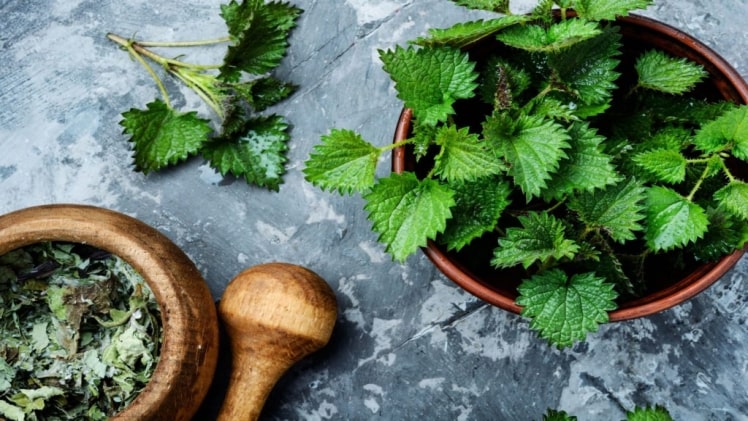Stinging nettle is a natural antihistamine that contains numerous beneficial properties for the body. It is also known to inhibit Staphylococcus strand and protects the body from free radicals. But does nettle help with hair loss foodiesfact? Read on to find out! This article was written with the intention of providing basic information and making readers aware of what this herb can do for their health.
Helps prevent hair follicle damage
Hair follicle damage is an unpleasant condition. Damaged hair follicles can result in hair loss, receding hairlines, bald spots on the crown, and diffuse thinning of the head. In some cases, irritated or itchy scalp may be another symptom. Genetic and hormonal problems, infections, and styling products can damage hair follicles. It is important to know how to identify the signs of hair follicle damage.
A damaged hair follicle can result in nettle for hair loss, thinning hair, and impaired hair growth cycle. One temporary hair loss condition is telogen effluvium, a situation in which an excess number of follicles prematurely enter the telogen stage. While excessive hair fall does not progress to baldness, it does cause a noticeable change in the appearance of thinning hair.
Stinging nettle is a natural antihistamine
Stinging nettle is a powerful antioxidant and is effective in treating many ailments, including prostate and urinary tract infections. It is also useful in treating arthritis, joint pain, and osteoarthritis. In addition, it reduces the need for nonsteroidal anti-inflammatory drugs (NSAIDs).
Among its many other uses, stinging nettle can help treat hair loss. Its antihistamine and anti-inflammatory properties help combat the symptoms of hay fever and other allergy-related conditions. It is also known to improve hair growth and follicle health and help retain hair. It is beneficial for prostate health and has a long history of use in women’s reproductive health. It can be used as a tea, as a supplement, or as a food supplement. If taken in moderation, nettle will not cause adverse side effects, although people with kidney disease or kidney problems should avoid stinging nettle.
Free radicals
Free radicals are chemically unstable molecules with one unpaired electron. These molecules will look for other molecules to bond with and steal an electron from igadgetnow. This leaves the molecule being robbed one electron short. This process occurs over time and eventually leads to hair loss and a range of other issues. As we age, our bodies become more prone to free radical damage. The theory behind this process first emerged in 1956 and was confirmed by several researchers.
When you are exposed to sunlight and pollution, your body produces reactive oxygen species. While your body metabolizes oxygen very efficiently, 1% to 2% of your cells become free radicals. These particles cause cellular damage and may contribute to heart disease, vision loss, and other chronic illnesses igadgetnewstoday. They may also damage your hair follicles. For those reasons alone, antioxidants are vital for hair growth.
It enhances blood supply to the scalp
The inversion position is a bed position in which the head is positioned over the edge. It improves blood circulation to the scalp and also helps in hair loss. However, be warned: this position can make you dizzy. It also relaxes the forehead and relieves tension. Besides, it also provides much-needed moisture to the scalp. The hair follicles are deprived of sufficient blood circulation due to the centrally-heated home and chemicals in shampoos. Essential oils are known to warm the scalp and hydrate it.
The human body receives blood from the heart through its chambers, and the scalp is the furthest from the heart. When blood supply is poor to the scalp, hair follicles cannot receive sufficient oxygen and nutrients newspinup. Hence, it is crucial to detect this problem and take immediate buxic measures to remedy it. A primary symptom of poor blood circulation is hair fall. Hair fall indicates a disturbing cycle of hair growth.

